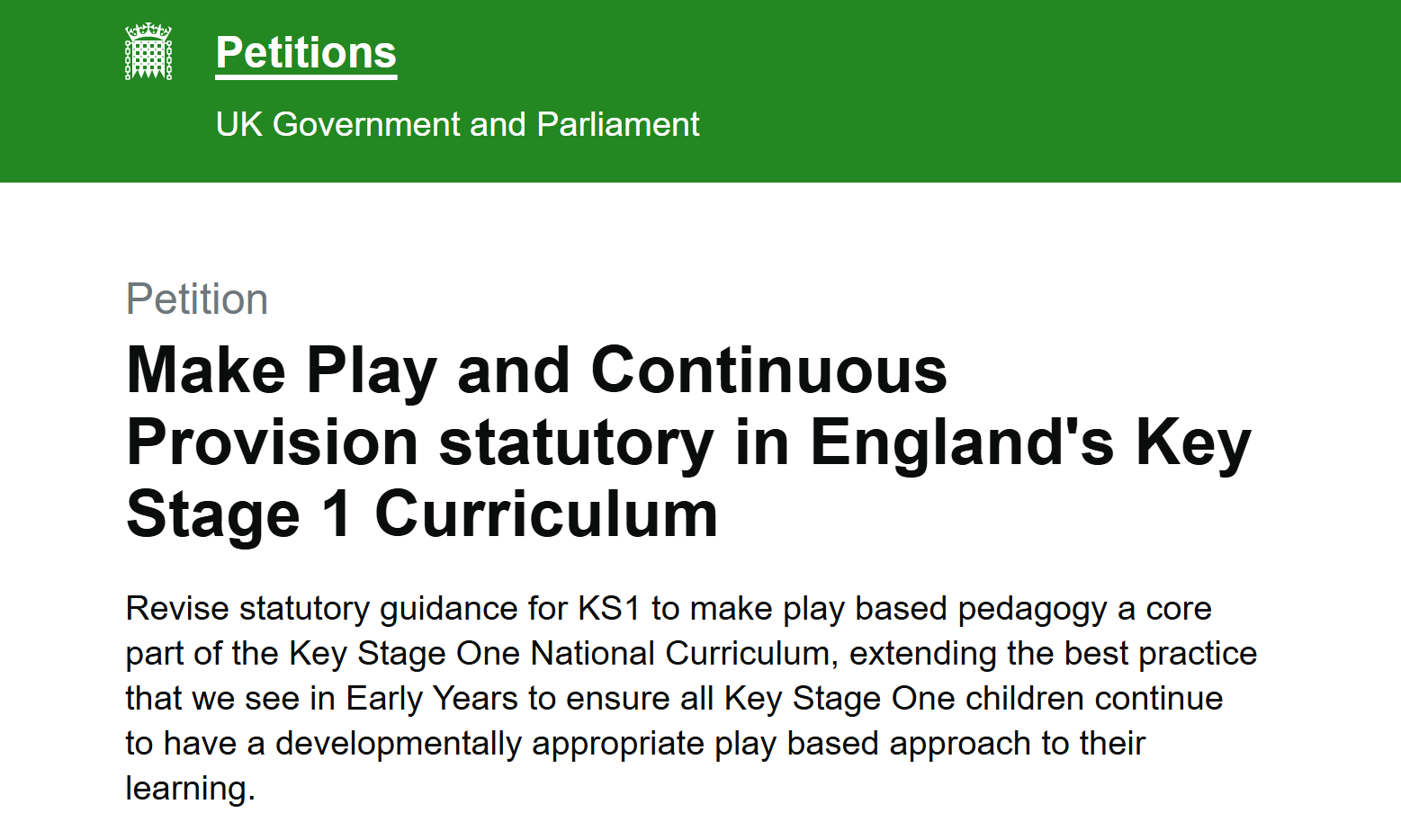Play England supports call to make learning through play statutory in Key Stage 1
Play England welcomes the national petition from play-based learning consultant Ruth Lue-Quee, calling on the Government to make play and continuous provision statutory for children aged 5 to 7 in Key Stage 1. With 94,000+ signatures already secured, the campaign is building strong momentum towards a Parliamentary debate.
Under the Early Years Foundation Stage (EYFS) framework, schools and early years settings are required to embed play-based learning and create enabling environments that support both child-initiated and adult-supported exploration. Yet once children move into Key Stage 1 (Years 1 and 2), that requirement disappears — leaving a significant developmental gap.
“Play is essential for children’s development, building their confidence as they learn to explore, relate to others, set their own goals, and solve problems. Children learn by leading their own play, and by taking part in play and learning that is guided by adults.”
Department for Education (on EYFS)
“Play isn’t a luxury. It isn’t just fun. It is how children learn best. Decades of research show that play builds cognitive skills, supports wellbeing, and develops social and emotional resilience. Yet in England, we pull the rug from under our youngest learners the moment they leave the Early Years Foundation Stage. This isn’t about lowering standards or holding children back. It’s about creating the right foundation.”
Ruth Lue-Quee, My Mummy Teacher
This call reflects growing concern among educators and researchers that England’s education system has become too formal, too soon — in contrast to Wales and Scotland, where play-based approaches continue well into early primary education.
Why learning through play matters
Play supports children’s cognitive, social, emotional and physical development more effectively than rote learning.
It nurtures curiosity, resilience and problem-solving skills.
Avoiding premature formalisation can reduce stress, disengagement and teacher burnout.
How this aligns with Play England’s strategy
This petition aligns closely with Play England’s bold, new 10-year strategy - It All Starts with Play! which calls for play to be embedded across all systems that shape children’s lives — including education. Ensuring that children continue to learn through play beyond the Early Years Foundation Stage is central to achieving our shared vision of restoring a play-based childhood for all children by 2035.
What you can do
Share it with your network, followers or community
Encourage colleagues, parents and educators to sign and spread the word
Contact your MP or councillors to ask for their support
At 100,000 signatures, the petition will be considered for debate in Parliament — a key opportunity to make learning through play part of the national conversation.
Together, we can help ensure that play is recognised as an essential part of learning — not an optional extra.
The importance of play-based learning in schools will also feature in an upcoming meeting of the All-Party Parliamentary Group (APPG) on Play, where parliamentarians and sector partners will explore how play can be better protected and promoted across education policy and practice.
#ItAllStartsWithPlay!

